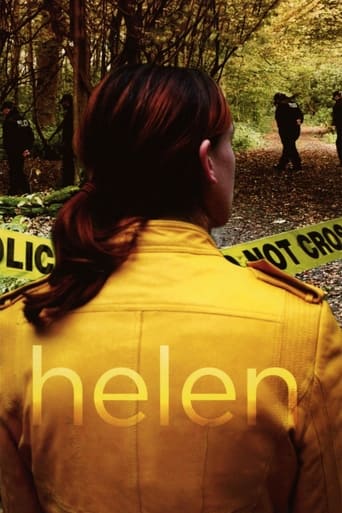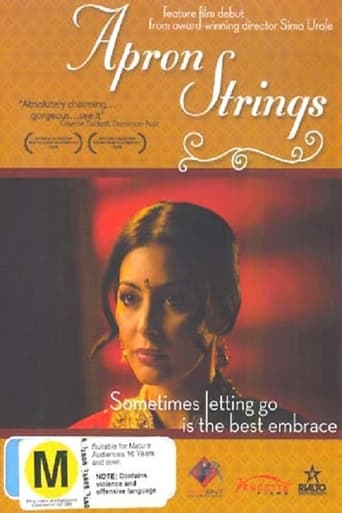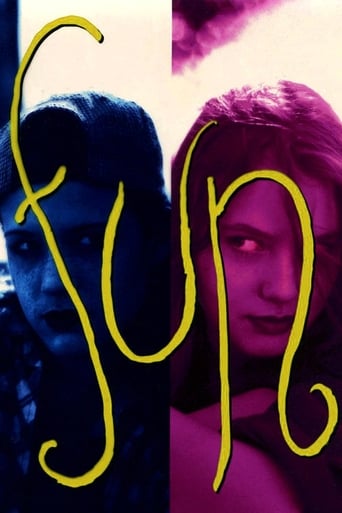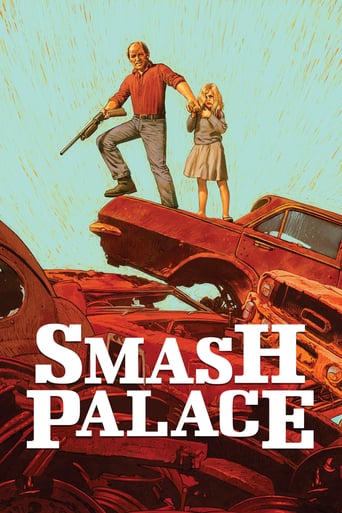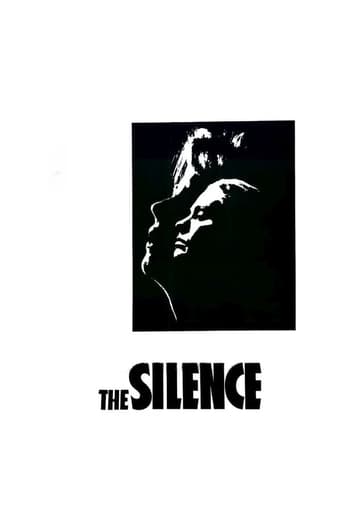
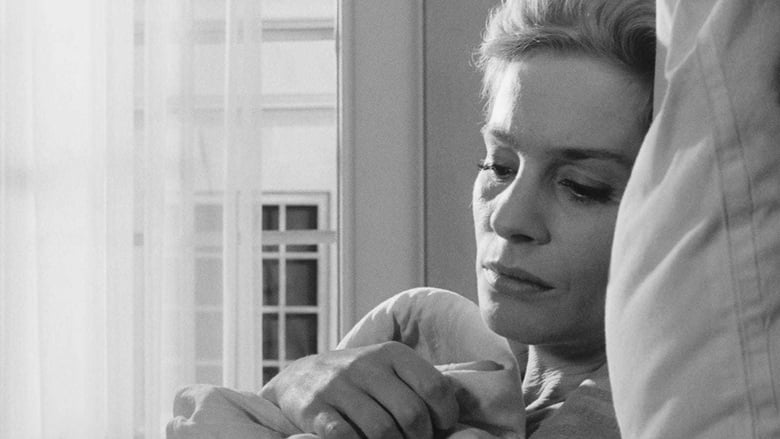
The Silence (1963)
Traveling through an unnamed European country on the brink of war, sickly, intellectual Ester, her sister Anna and Anna's young son, Johan, check into a near-empty hotel. A basic inability to communicate among the three seems only to worsen during their stay. Anna provokes her sister by enjoying a dalliance with a local man, while the boy, left to himself, has a series of enigmatic encounters that heighten the growing air of isolation.
Watch Trailer
Cast
Similar titles
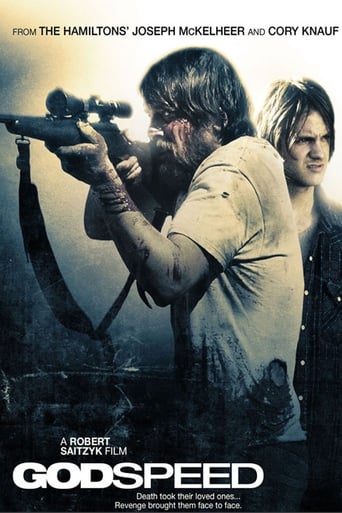
Reviews
Most undeservingly overhyped movie of all time??
Captivating movie !
An absolute waste of money
Very interesting film. Was caught on the premise when seeing the trailer but unsure as to what the outcome would be for the showing. As it turns out, it was a very good film.
Camera and directing make this film visually perfect. Every frame is black and white art photography, many of which leave you breathless. There's hardly a dialogue in the movie and sound is so naturally blended with picture that at times it seems like a silent movie. There are not many developments and for a while it was quite boring to me, but when it ended I instantly wished to see it again. Bergman doesn't need action and dialogues to tell a story. Camera and body language are more than enough. Ingrid Thulin and Gunnell Lindblom will impress you with their acting, and also with beauty. This movie opens many questions and doesn't provide answers, but rather leaves that task to our subjective interpretations. I was going through some reviews and came across a variety of interpretations, but I think that attempts to explain this film are essentially a waste of time. It's quite enough just to experience it in and for yourself.8/10
"The Silence" earns a 3 because it has really nice black & white cinematography and the story is, well, unique. But apart from that, the film is a total bore...even with its sexually explicit interludes.When the story begins, two women and a boy are traveling by train abroad. One of the women, Esther, gets sick and they spend the rest of their vacation stuck in a hotel room in some fictional European country. However, over the course of the film you learn a few things about the women. One sister is very ill and spends a lot of the film having convulsions and lying in bed. She also seems emotionally constricted and yet longs for sexual outlet...as you see her masturbating in one scene. The other sister, Anna, is totally unconstricted. She gets bored and leaves her son in the room while she goes out to have anonymous sex on several occasions. It's as if one sister is the ego--filled with guilt. And, the other is pure id--enjoying carnal delights and having no guilt whatsoever. As for the boy, the IMDb summary says he's 13 but he looks about 8 and you learn very little about him...he just is. And, at times, he leaves the room to play, see the porter or hang out with a gang of dwarfs. So why is this film so popular among Bergman's films? And, why was it the basis of an "SCTV" sketch which made fun of Bergman's films? Well, I've seen nearly all of Bergman's films and must say this one is completely unlike his others. Apart from misery and pain (popular Berman themes), the film is nothing like his others in many ways. The film is, at times, essentially a silent film--with very, very, very long periods in which no one says anything. It also is extremely sexually explicit--with not only casual nudity but folks having intercourse. It's super-explicit for the early 60s but by today's standards would earn the film an R rating. In fact, this explicitness must be the reason that this is such a popular film-- folks back in 1963 could see sex! But to get to the sex scenes, you have to slog through so much boredom and awfulness...as well as the ill woman contemplating her existence. My recommendation? See Bergman's other films or go rent a porno film. Both would be MUCH more satisfying than seeing this bizarro and very dull film.
A film I definitely need to see again. My first reaction was the same I've had to many of Bergman's films: deep admiration, but not personal adoration. In this case, the more extreme, self-conscious surreal style threw me off. This feels more like something by Bunuel, Fellini, Beckett or Lynch (all of whom I love). Two sisters, polar opposites – one sensual, emotional, promiscuous, self-centered, representing the body, the id. The other, intellectual, sickly, sexually isolated stands for mind or super ego. The child of one, perhaps 8 years old, is accompanying them on a train trip, heading home. We never know where they're coming from or why they went. They stop in a city clearly preparing for war, or under some sort of military occupation. They stay in a baroque but almost abandoned hotel, unable to communicate with anyone, since this unknown land has a language none of them speak. While one sister picks up lovers, and the other languishes ill in bed, the boy explores the creepy hotel (The Shining was definitely influenced by this), making friends with a circus full of dwarf performers, who, pointedly, are the most normal people in the film. All of this is done with very little dialogue (to the point where the effect felt forced and self- conscious at times). I had a hard time clicking in while watching the film, but images and moments have really stuck with me, and reading why so many intelligent critics think it's a masterpiece makes me very open to re-visiting this extremely open ended, stylized film.
It takes time for this to become a drama and when it does its resentment again. Bergman uses confessional hate between people often eg. Winter Light, Autumn Sonata and here as the spur to conflict. It works dramatically, its horrible and its also cathartic.But the weakness in this film is that its suggested and not fully rendered and consequently The Silence lacks the qualities of the first two in the so-called trilogy. They have a richer meaning in the dialog, in the circumstances, where this sometimes feels like an exercise in making cinema.Observing people wandering about is interesting for only a limited amount of time, another level of insight must be given. It also shares qualities with the third part of Antonioni's trilogy -- L'Eclisse, which is about people incapable of communicating, leaving silence. L'Eclisse is a much stronger film.Even so, the lead actors are bewitching, as are the photography and compositions too.



